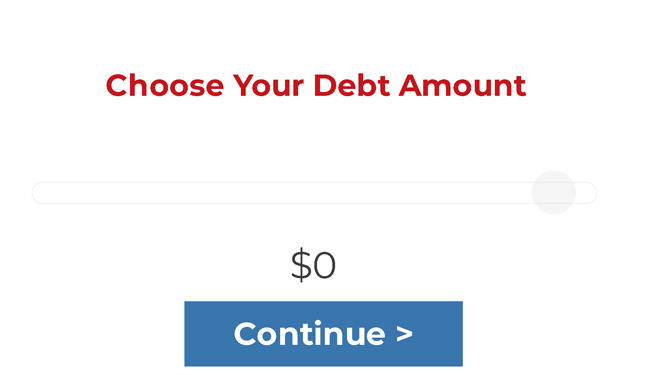Funding Circle, a prominent figure in the debt consolidation landscape, is not immune to the scrutiny and skepticism that’s prevalent in the industry. With its promise of simplifying debt management, it projects itself as a beacon for those struggling to keep up with their financial obligations. However, an undercurrent of controversy and doubt weaves through the narrative around this company.
Public review platforms like Better Business Bureau (BBB) and Trustpilot provide a platform for people to voice their experiences, painting a mixed picture of Funding Circle. While some laud its services, others express dissatisfaction and frustration, igniting doubts about the integrity and credibility of this company. This reflects the broad skepticism surrounding the debt consolidation industry, much like the questionable credibility of the characters in the film “The Big Short.”
This review intends to delve into this dichotomy, unraveling the truths behind Funding Circle’s offerings. We’ll explore its background, assess its product and services, highlight any associated risks and controversies, weigh its pros and cons, and finally, draw a conclusion about Funding Circle’s place in the debt consolidation industry. As we navigate through this critical review, we invite you to approach it with the same skepticism that you might have while watching a heist unfold in a Hollywood thriller.
Company Background

Founded in 2010, Funding Circle was established with the aim of revolutionizing the outdated banking system and making financial services more accessible to small businesses. The UK-based company presented an alternative to traditional business financing, allowing businesses to connect directly with investors on their peer-to-peer lending platform.
Although initially lauded as an innovative solution in the financial sector, darker shades of Funding Circle’s operations began to surface within a few years. Criticism regarding their lending practices, transparency, and customer service started to creep into the picture.
One disturbing incident involved a business owner who reported that using Funding Circle’s services worsened their financial situation instead of improving it. This case, mirroring the storyline of the movie “Margin Call,” where a financial crisis is sparked by risky lending practices, cast a dark shadow over Funding Circle’s operations.
As of today, Funding Circle operates not just in the UK, but also in the USA, Germany, and the Netherlands. However, as they have expanded, so has their list of controversies. In 2019, they were forced to cut their growth forecast, leading to a significant drop in their share price. The company faced severe backlash over their decision to halt retail lending in 2020, leaving many investors dismayed.
These instances question Funding Circle’s credibility, making it crucial for potential customers to be wary and diligent when dealing with this company. The tale of Funding Circle serves as a reminder of the age-old adage – all that glitters is not gold. A promising start doesn’t necessarily equate to a flawless journey. As they say in the movie “Wall Street,” “Greed, for lack of a better word, is good,” but in the world of finance, it’s wise to tread with caution.
Funding Circle Products/Services

At the heart of Funding Circle’s operations are their debt consolidation products and services, primarily focused on small business loans. They claim to offer an easy, fast, and transparent process for businesses to secure loans. However, a critical analysis reveals discrepancies in their claims.
Here’s what you need to know about Funding Circle’s offerings:
- Loan Range: Funding Circle offers loans between $25,000 to $500,000, a wide range which is beneficial for different scales of businesses.
- Loan Terms: Loan terms range from six months to five years. This flexibility is a plus, but it’s accompanied by high interest rates, which brings us to the next point.
- Interest Rates: The APR for loans can vary from 12% to 36%. This is where the alarm bells start ringing. The rates are significantly high, making the repayment process a financial burden for many businesses.
Now, let’s turn to the public reviews. When you skim through the BBB and Trustpilot reviews, you’ll find customers complaining about everything from hidden charges to an unresponsive customer service team. This contradicts Funding Circle’s claim of a transparent process and excellent customer service.
If you’ve been paying attention, the answers should reveal why skepticism towards Funding Circle’s offerings is mounting among businesses. The company’s services, cloaked in the promise of easy and quick loans, seem to be a double-edged sword – potentially helpful but fraught with risks.
Risks and Controversies

While Funding Circle may present itself as a viable platform for debt consolidation, there is a darker side to this company. Numerous risks, controversies, and complaints have been tied to Funding Circle, which any potential user should scrutinize carefully.
- To start, Funding Circle has faced criticism for misleading advertising and lack of transparency, particularly regarding their interest rates and fees. Customers have reported unexpected charges and high-interest rates, which have led to further debt rather than debt relief.
- Concerns have also been raised about the company’s overall business practices – Funding Circle’s decision to halt retail lending in 2020 led to an uproar among investors and has been viewed as a breach of trust.
- Their customer service is another major point of contention. Many users have reported poor responses and lack of support from the Funding Circle team, adding to the grievances of already frustrated customers.
- Furthermore, Funding Circle has faced legal action – in 2019, a class-action lawsuit was filed against the company in the US for allegedly providing misleading information to their shareholders.
Now, here’s a challenge for you – take a moment to consider these controversies and form your own opinion. How does these criticisms influence your perception of Funding Circle?
In the end, the controversies and complaints associated with Funding Circle present an alarming picture. As potential customers, it’s essential to tread carefully and weigh these risks against the potential benefits.
Pros and Cons
Like any company, Funding Circle has both advantages and disadvantages. Let’s delve into the details.
Pros:
- Broad Geographical Presence: Funding Circle operates in four countries, which is a testament to its prominent standing in the global marketplace.
- Focus on Small Businesses: Funding Circle’s commitment to helping small businesses secure loans through the Small Business Lending Program is commendable.
However, it’s the cons that have attracted the most attention and sparked a wave of skepticism.
Cons:
- High-interest rates: One of the most significant criticisms leveled against Funding Circle is its high-interest rates. These rates outweigh the benefits of the loans and often push businesses into further debt.
- Hidden Costs: Many users have reported hidden fees that were not disclosed upfront, challenging Funding Circle’s transparency.
- Poor Customer Service: Numerous complaints have been lodged about Funding Circle’s lackluster customer service. This includes unresponsiveness and lack of support.
In conclusion, while Funding Circle might appear to be a viable option for debt consolidation at first glance, a closer look reveals concerning drawbacks. It’s essential for customers to weigh these pros and cons carefully when considering Funding Circle for their financial needs. As the age-old saying goes, “buyer beware.”
Conclusion
Through this comprehensive analysis of Funding Circle, it becomes evident that the company exhibits several concerning issues that cannot be overlooked. From high-interest rates to hidden costs and poor customer service, Funding Circle has garnered a mixed reputation in the debt consolidation industry.
If this review brings to mind the shady deals in the movie “The Wolf of Wall Street,” you wouldn’t be far off the mark. Funding Circle, with its impressive promises and less than satisfactory delivery, mirrors the dubious and risky transactions that the movie’s characters engage in.
If you’re considering Funding Circle for debt consolidation, it’s crucial to conduct thorough research and compare multiple options. Our debt consolidation comparison chart can help you make an informed decision.
Remember, as you tread through the uncertain waters of debt consolidation, the final choice rests with you. Be cautious, be skeptical, and don’t be swayed by grand promises without solid evidence.
FAQs
1. What is the business model of Funding Circle? Funding Circle operates a peer-to-peer lending platform that connects small businesses seeking loans with investors willing to fund those loans. However, this business model has proven to be risky as it depends heavily on both the borrower’s ability to repay and the investor’s willingness to take on risk.
2. What are the risks associated with investing in Funding Circle? Investing in Funding Circle carries several risks. Firstly, Funding Circle loans are unsecured, meaning there is no collateral if the borrower defaults. Secondly, there is a lack of liquidity, as loans cannot be easily sold or transferred. Lastly, the success of the investment heavily relies on the economic climate and the personal circumstances of the borrowers.
3. Is my money safe with Funding Circle? While Funding Circle is regulated by the Financial Conduct Authority, investing in peer-to-peer loans is not covered by the Financial Services Compensation Scheme. This means that if Funding Circle were to go bust, investors could potentially lose all their invested money.
4. How does Funding Circle’s default rate compare with the industry average? Funding Circle’s default rate has historically been significantly higher than the industry average. This indicates that the loans offered by Funding Circle are generally riskier than those offered by traditional banks or other peer-to-peer platforms.
5. What happens if a borrower defaults on a Funding Circle loan? If a borrower defaults on a Funding Circle loan, the investor could potentially lose their entire investment. While Funding Circle tries to recover the funds, there is no guarantee that it will be successful.
6. Can I withdraw my money early from Funding Circle? Funding Circle does offer a secondary market where loans can be sold to other investors. However, this is dependent on there being willing buyers. Therefore, it might not always be possible to withdraw the money early.
7. What has been the performance of Funding Circle’s loans during economic downturns? Funding Circle’s loans have generally performed poorly during economic downturns. High default rates and a lack of liquidity can make these loans particularly risky during such periods.
8. How transparent is Funding Circle about its operations and loan performance? Critics have questioned Funding Circle’s transparency about its operations and loan performance. It has been suggested that the platform does not provide enough information for investors to fully understand the risks involved.
9. Have there been any regulatory issues with Funding Circle? Funding Circle, like many peer-to-peer platforms, has faced scrutiny from regulators due to the risks it poses to investors. The platform has been criticized for not doing enough to protect investors and for its high default rates.
10. How does Funding Circle make money? Funding Circle makes money by charging fees to both borrowers and investors. However, this model relies on a high volume of loans, which can lead to issues if loan demand drops or default rates rise.






